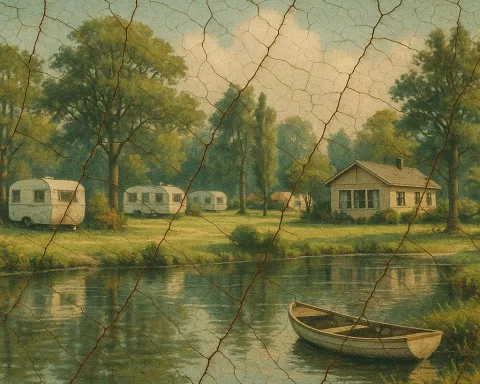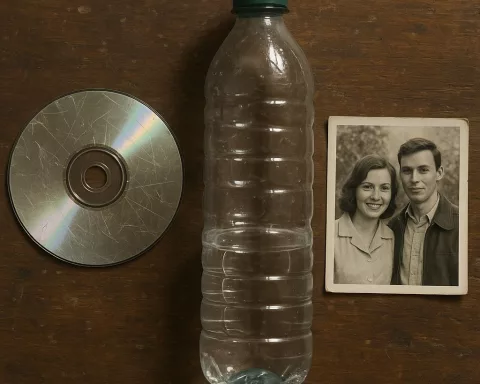South Africa’s Department of Correctional Services (DCS) is committed to maintaining peace and stability in society through its strategies and initiatives. The DCS not only administers justice but also focuses on rehabilitation and reintegration of offenders into society. The Department has introduced various security measures, including training programs for officials and campaigns to prevent escape and contraband smuggling. The DCS provides comprehensive healthcare services to inmates, emphasizes education and vocational training programs, and works with non-governmental partners to promote social reintegration efforts.
What is South Africa’s Correctional Services Outlook for 2024/25?
South Africa’s Department of Correctional Services (DCS) plays a pivotal role in maintaining peace and stability within society. The DCS formulates strategies to tackle societal issues while promoting economic development and societal transformation. The DCS has introduced various strategies to address security challenges such as escape attempts and contraband smuggling. They also provide comprehensive primary healthcare services to inmates and emphasize rehabilitation and societal reintegration. Non-governmental partners have an invaluable role in social reintegration efforts.
Integral Role of the DCS in a Safer South Africa
South Africa’s Department of Correctional Services (DCS) holds a pivotal role in maintaining peace and stability within society. With a mission centered on fostering a climate devoid of fear, the DCS formulates strategies and undertakes initiatives to tackle core societal issues such as poverty, disparity, and joblessness. Simultaneously, the Department promotes economic development and societal transformation.
Concerns have risen due to the increasing crime rates in South Africa and their corresponding impact on the security of correctional institutions. The Department has responded to these issues by intensifying Emergency Support Team (EST) official training programs over the past three years. These officials are prepared to handle various scenarios, including violent assaults, riots, and high-risk protection duties. Their training includes using minimum force necessary and other essential duties.
Correctional Facilities: Justice and Rehabilitation
Correctional facilities in South Africa serve a function beyond administrating justice. For those who have breached the law, these institutions symbolize a new opportunity to correct their paths. Educational programs, vocational training, and counseling services are provided to prisoners to aid them in reshaping their lives.
However, securing these institutions and maintaining a safe environment can be a daunting task. This challenge is further exacerbated by the growing trend of unauthorized settlements sprouting in the vicinity of these facilities. This trend has sparked various security complications, including illegal electricity connections and smuggling of forbidden items into the facilities. St Albans in Gqeberha is one facility that has been notably impacted by these developments.
Addressing Security Challenges and Health Care Provision
The DCS has introduced various strategies to efficient control and discourage security breaches, including escape attempts and contraband smuggling. These efforts have led to a decrease in escape incidents, assaults, and unnatural deaths. A rigorous commitment to implementing escape prevention strategies and adhering to Standard Operating Procedures has seen a decrease in escapes between the financial years 2021/22 and 2022/23. The DCS anticipates reducing all security incidents across correctional facilities over the MTEF period.
Along with physical measures, the DCS’s approach to security extends to time-bound campaigns. Every year, from December to January, the Department enforces the Festive Season Security Operational Campaign to heighten security during the holiday period. They are also exploring strategies to mitigate unnatural deaths caused by suicides, recognizing that more than just routine patrols are required after lockdown time.
To distinguish remand detainees from civilians working within these facilities, the Department enforces the wearing of yellow uniforms by all detainees. This mechanism reduces the risk of security breaches. Despite resource constraints, the Department remains dedicated to implementing these measures.
Simultaneously, the DCS underscores the importance of providing comprehensive primary health care services to inmates. With 243 correctional centers nationwide, the Department has expanded its portfolio of pharmacies to 37 as of 31 March 2024. These pharmacies comply with the Good Pharmacy Practice in South Africa, thereby improving the inmates’ healthcare services.
Rehabilitation, Reintegration, and Education
Community corrections is a crucial element of the South African criminal justice system. It presents a cost-effective alternative to imprisonment and emphasizes rehabilitation and societal reintegration. The establishment, growth, and diversification of the current community corrections system have enabled offenders the chance to live a responsible, crime-free life within their communities.
The DCS has made considerable progress in ensuring adherence to parole and correctional supervision conditions. They have secured a total of 518 vehicles for effective surveillance and procured 360 computers to enhance service delivery. This aids in the efficient execution of Social Reintegration programs.
To aid offenders in rejoining society post-release, correctional programs are designed to instill life skills. These programs are in line with the national education system, ensuring offenders receive high-quality education and training.
The collaboration between the DCS and the Departments of Basic and Higher Education has significantly enhanced learning outcomes. The Grade 12 pass rate increased from 73% in the 2015/16 financial year to an impressive 87% in the 2022/23 financial year.
Vocational education and training are essential in promoting social inclusion of offenders. Training programs aim to reduce repeat offending by equipping prisoners with knowledge, skills, and competencies that meet labor market demands. The Department has implemented eLearning in 45 registered TVET College Centres, providing offenders with access to various programs.
Role of NGO Partners and Future Vision
Non-governmental partners have an invaluable role in social reintegration efforts. These partnerships often include victims of crimes, providing them an active role in the rehabilitation process.
As South Africa celebrates Mandela Month, the collective vision is unambiguous – to create a nation that cares for the most vulnerable and provides hope for a brighter future. This united vision fuels the dedication and efforts of the DCS towards ensuring safe and secure communities.
1. What is the mission of South Africa’s Department of Correctional Services?
South Africa’s Department of Correctional Services is committed to maintaining peace and stability within society through its strategies and initiatives. The DCS not only administers justice but also focuses on rehabilitation and reintegration of offenders into society.
2. What security measures has the DCS introduced to tackle security challenges in correctional facilities?
The DCS has intensified Emergency Support Team official training programs, which prepares officials to handle various scenarios, including violent assaults, riots, and high-risk protection duties. They also enforce wearing yellow uniforms by all detainees and introduced time-bound campaigns such as Festive Season Security Operational Campaign to heighten security during the holiday period.
3. How does the DCS provide healthcare services to inmates?
The DCS provides comprehensive primary healthcare services to inmates, with pharmacies nationwide that comply with the Good Pharmacy Practice in South Africa.
4. What programs does the DCS offer to promote rehabilitation and reintegration of offenders into society?
The DCS provides educational programs, vocational training, and counseling services to prisoners to aid them in reshaping their lives. They also collaborate with the Departments of Basic and Higher Education to enhance learning outcomes and promote social inclusion of offenders through vocational education and training programs.
5. What is the importance of NGO partners in social reintegration efforts?
Non-governmental partners have an invaluable role in social reintegration efforts, often including victims of crimes, providing them an active role in the rehabilitation process.
6. What is the future vision of the DCS?
The future vision of the DCS is to create a nation that cares for the most vulnerable and provides hope for a brighter future by ensuring safe and secure communities.












